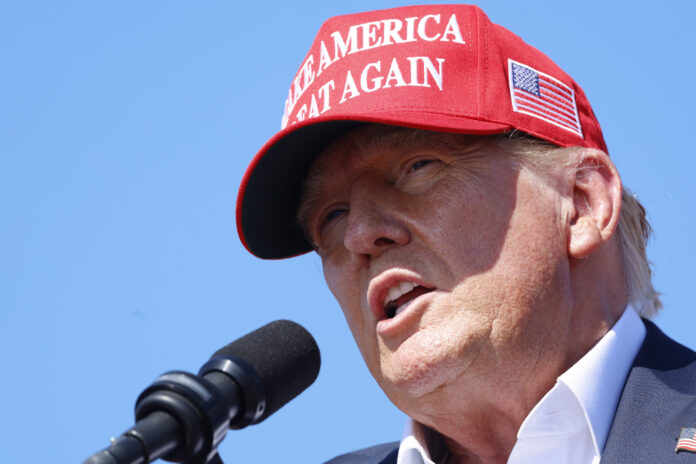“Trump’s Controversial Pardons: Jan. 6 Criminals Granted Clemency After Biden’s Police Officer Pardons” – MSNBC
Former President Donald Trump has been making headlines once again after pardoning several individuals involved in the January 6 insurrection at the U.S. Capitol. This move comes shortly after President Biden granted clemency to the police officers who were on duty during the violent events of that day. The stark contrast between the two leaders’ pardons has reignited public debate over the events of January 6 and the consequences for those involved.
In a recent statement, Trump justified his decision to pardon the January 6 criminals by claiming that they were “unjustly persecuted for their political beliefs” and that the violence at the Capitol was “largely a peaceful protest.” These claims have sparked controversy and drawn criticism from experts and officials who have pointed to overwhelming evidence of the violent and unlawful actions that took place on that day.
While fact-checking these statements, it is important to note that multiple investigations and court proceedings have established the extent of the violence and the direct involvement of numerous individuals in the insurrection. In fact, the FBI has arrested and charged hundreds of individuals in connection with the events at the Capitol, and several have already been convicted for their actions.
Trump’s history of making false claims and spreading misinformation has been well-documented. According to fact-checkers, he has made thousands of false or misleading statements during his time in office, including baseless claims about election fraud, the COVID-19 pandemic, and other critical issues. These false claims have had a significant impact on public opinion and trust in institutions, with studies showing a growing erosion of confidence in the media and democratic processes.
The impact of Trump’s false claims has extended to public discourse and has been linked to incidents of unrest and violence. For example, his repeated claims of election fraud played a role in fueling the January 6 insurrection, and his rhetoric surrounding the COVID-19 pandemic has contributed to misinformation and public health challenges. As a result, officials have emphasized the importance of maintaining election integrity and public safety in the face of false narratives.
In light of these developments, it is crucial to critically examine Trump’s statements and their potential implications, while maintaining an objective and factual approach. The influence of misinformation on public opinion and behavior, as well as its impact on trust in institutions, cannot be overstated. As the public continues to grapple with the aftermath of January 6 and the broader implications of false narratives, the need for accurate and responsible reporting remains paramount.
As the political landscape evolves, it is essential for readers to stay informed about these critical issues and to engage with reliable sources of information. By presenting verified facts and expert perspectives, we can contribute to a more informed and resilient society. Ultimately, the impact of Trump’s false claims underscores the importance of upholding truth and accuracy in public discourse.
Source link
Redirect URL
